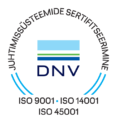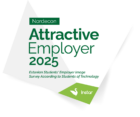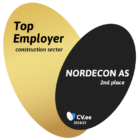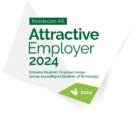“Construction is probably one of the industries with the lowest efficiencyin the world. This means that there should be plenty of room to grow and develop it – technological development can do it,” said Gerd MüllerChairman of the Management Board of Nordecon AS at BIMSummit.“BIM (3D Modelling) creates the prerequisites for all the construction parties to do more cooperation – technological barriers are overcome, and the customer gets the building he or she has dreamed of. One of BIM’s great importance for society as a whole, especially for the construction industry, is that it has to bring building partners and their cooperation to a new level. There is enormous potential in the area of construction, but also enormous responsibility to take advantage of this potential, not to leave things as they have always been. We have a lot to do to popularize the construction industry, and BIMSummit is a great place to do this: we break down myths and show you what’s available in the construction industry and learn from the innovators of the sector.”
“There are currently three irreversible megatrends in the world: digital development, climate change, and demographic change. In this enormous change, it is clear that everyone needs to learn constantly. When in the year 1999, the biggest problem in the world was the year 2000 – nobody knew what would happen to the watches, computers, and there was a huge amount of counselling and programming to deal with the number switching, then today, just 20 years later, we are in a completely new situation. We can predict today what quantum computers or artificial intelligence can do and gather data for it, so maybe we can take advantage of them in the future,” said Gerd Müller.
According to Gerd Müller, construction must go along with the world’s megatrends. “When we talk about climate and digital development in construction, we need to know that the carbon footprint of buildings is greater, for example, in the transport sector. This means that the decisions and projects we are making today must be very well thought out – for example, we must also increasingly innovate and learn to build for society with a less energy load. Advanced democracy also means that we will not achieve success at all costs, but we will also ensure that everyone, both people and nature, remains intact. This means that Estonian companies are facing change. ”









